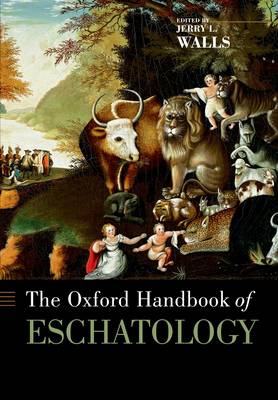
- Afhalen na 1 uur in een winkel met voorraad
- Gratis thuislevering in België vanaf € 30
- Ruim aanbod met 7 miljoen producten
- Afhalen na 1 uur in een winkel met voorraad
- Gratis thuislevering in België vanaf € 30
- Ruim aanbod met 7 miljoen producten
Zoeken
€ 114,45
+ 228 punten
Omschrijving
Eschatology is the study of the last things: death, judgment, the afterlife, and the end of the world. Through centuries of Christian thoughtfrom the early Church fathers through the Middle Ages and the Reformationthese issues were of the utmost importance. In other religions, too, eschatological concerns were central. After the Enlightenment, though, many religious thinkers began to downplay the importance of eschatology which, in light of rationalism, came to be seen as something of an embarrassment. The twentieth century, however, saw the rise of phenomena that placed eschatology back at the forefront of religious thought. From the rapid expansion of fundamentalist forms of Christianity, with their focus on the end times; to the proliferation of apocalyptic new religious movements; to the recent (and very public) debates about suicide, martyrdom, and paradise in Islam, interest in eschatology is once again on the rise. In addition to its popular resurgence, in recent years some of the worlds most important theologians have returned eschatology to its former position of prominence. The Oxford Handbook of Eschatology will provide an important critical survey of this diverse body of thought and practice from a variety of perspectives: biblical, historical, theological, philosophical, and cultural. This volume will be the primary resource for students, scholars, and others interested in questions of our ultimate existence.
Specificaties
Betrokkenen
- Auteur(s):
- Uitgeverij:
Inhoud
- Aantal bladzijden:
- 744
- Taal:
- Engels
- Reeks:
Eigenschappen
- Productcode (EAN):
- 9780199735884
- Verschijningsdatum:
- 16/04/2010
- Uitvoering:
- Paperback
- Formaat:
- Trade paperback (VS)
- Afmetingen:
- 170 mm x 244 mm
- Gewicht:
- 1161 g

Alleen bij Standaard Boekhandel
+ 228 punten op je klantenkaart van Standaard Boekhandel
Beoordelingen
We publiceren alleen reviews die voldoen aan de voorwaarden voor reviews. Bekijk onze voorwaarden voor reviews.











